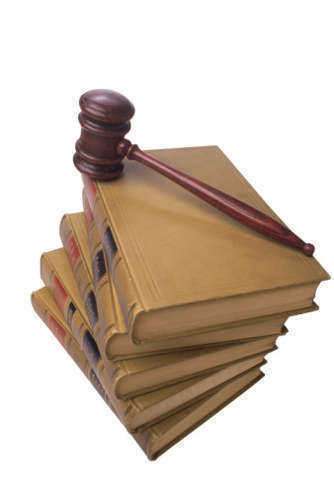
Illinois bankruptcy lawyers help individuals that intend to file for bankruptcy navigate the legal system by selecting an appropriate bankruptcy option, obtain appropriate credit counseling and emerge from bankruptcy after a repayment plan has been fulfilled.
How do I discharge my debt?
The only way to discharge unsecured debts is to declare Chapter 7 bankruptcy. In Chapter 7 bankruptcy, a trustee is appointed to liquidate unsecured assets in order to repay creditors. Repayment is at the discretion of the trustee and the debtor has little say in the matter. The credit impact of bankruptcy will last for ten years. Most debts owed are discharged, except for child support, student loans, property and income taxes less than 3 years old, as well as financial penalties associated with law-breaking. To get rid of secured debt, the only method would be to give up the collateral the debt is secured against. Secured debt usually means all property that can be foreclosed on or repossessed. Secured debts are not liquidated during bankruptcy and can be kept or surrendered, based on arrangements the owner makes with the debt holder. An Illinois bankruptcy lawyer can help you determine what to do with secured debt and which of the other debts are unsecured.
What is an alternative to the liquidation of my assets?
Chapter 13 bankruptcy is a court supervised repayment plan that does not discharge debts. It does however give the debtor time to reorganize and pay off debts while keeping all assets. This will be because the debtor has steady income stream that can be used in a repayment plan while also convincing the court that he or she will be able to abide by the terms of the repayment agreement. This debtor must be able to demonstrate sufficient need for bankruptcy protection yet the financial ability to eventually pay off the debts when given extra time to repay debts. The Illinois bankruptcy lawyer will help you determine if you can file for Chapter 13 and comply with the provisions of the repayment agreement. The repayment plan typically lasts 3 – 5 years.
What to prepare before meeting with the Illinois bankruptcy lawyer
You must collect all bills as well as well as a listing of your assets and be prepared to show them to the attorney. You will need tax returns for the previous two years, and any other relevant personal finance documents. The Illinois bankruptcy lawyer needs all of this information to determine your situation and the appropriate bankruptcy option. The intention of Chapter 13 bankruptcy is the preservation of your assets, so it is important to have an accurate representation of all assets so that you may make the best case. You need to be able to prove that you are financially solvent enough to sustain a repayment plan yet still in need of the bankruptcy option. Failure to prove that your debt load is a true burden will not allow you to pursue bankruptcy and force you into credit counseling instead, which maintains your debts.
What property is exempt from liquidation?
Illinois state law exempts the following property from bankruptcy rulings:
– Bibles, school books and family pictures
– Necessary clothing
– Equity in property under $4,000
– Interest in a motor vehicle under $2,400
– Professional tools, implements and books under a combined value of $1,500
– Health aids
– Most insurance, veterans, social security, and spousal support benefits
An Illinois bankruptcy lawyer can assist you in determining which property is exempt
Where to look for an attorney
Instead of searching online or in the Yellow Pages, the best practice is to use the Illinois State Bar Association directory. This will give you the best range of choices and you are almost guaranteed that members of the State Bar of Illinois adhere to ethics codes and are up-to-date on legal matters concerning their specialty. Additionally city and country bar associations will also have lawyer referral services, which will be able to connect you to an Illinois bankruptcy lawyer at an affordable fee.
You may use this website to find an attorney. To do so, use the search box on top of all pages. You may also compare attorneys and ask free questions by clicking Find Attorneys on top of the page.
Rates, Fees & Retainers
The fees to file for bankruptcy in Illinois are currently $274 for Chapter 13 and $299 for Chapter 7. This is in addition to lawyer fees. Fee cans be waived or paid in installments at the discretion of the court.
Hourly rates may be accrued from using the lawyer or support staff such as paralegals. This is a simple arrangement and you should have a general idea of the amount that will be billed. This may not include flat legal service fees such as document preparation and filing. It is especially important to be aware of those fees.
A retainer fee is a non-refundable advance payment by the client that covers the cost of services provided by the lawyer. This payment is put into an account and billed whenever the lawyer performs services. This account may need to be refilled as the case continues. Although bankruptcy cases are not typically lengthy, retainer agreements can still be expensive, depending on the frequency by which the lawyer’s services are used.
Free services may be available to low-income families as well as no-cost consultations. Payment plans can be arranged between clients and lawyers in case there is significant financial hardship for the client.
Interviewing your attorney
The following questions are important when interviewing your attorney:
What fees do I pay for retaining services? Can I have that in writing?
What are my options? Can I file for Chapter 13 bankruptcy and preserve my assets?
Can I contact you directly if there is a problem?
Can you allow me to examine your credentials?
What is your experience with bankruptcies, specifically my circumstances?
If you cannot handle my case, can you refer me to a lawyer that can?
As bankruptcy is meant to be a “last resort” for people in debt, federal law mandates that anyone seeking bankruptcy receive credit counseling after their filing. If credit counseling is not an option, then bankruptcy lawyers in Illinois can advise you on the best possible next step. Bankruptcy lawyers in Illinois will have knowledge of state adjustments to federal bankruptcy laws, especially property that will be exempt from the bankruptcy judgment. There are two primary bankruptcy options for individuals and before filing for either, one should consult a bankruptcy lawyer. Illinois lawyers will be able to help you choose either Chapter 7 or Chapter 13 bankruptcy. Lawyers in Illinois will be able to advise you on the merits of each chapter and evaluate your financial situation to determine if you should seek a discharge of debts under Chapter 7, or a structured repayment plan under Chapter 13. You may pursue bankruptcy without a bankruptcy lawyer Illinois. This is called bankruptcy pro se and is not recommended. Bankruptcy lawyers in Illinois are your best bet to make a persuasive argument in federal bankruptcy court, which will lead to a somewhat favorable decision for the debtor to abide by.
The federal courts also warn against “petition preparers” that operate outside the law that merely type information on bankruptcy forms that are otherwise free to the public. They are not allowed to provide legal advice and cannot accept court fees from the client. They must also clearly identify themselves, as per federal regulations, when they prepare a federal petition for another person. The may not file on behalf of another person. Persons filing for bankruptcy are advised to find a bankruptcy lawyer from Illinois to ensure long term compliance with court orders and the best legal advice.











